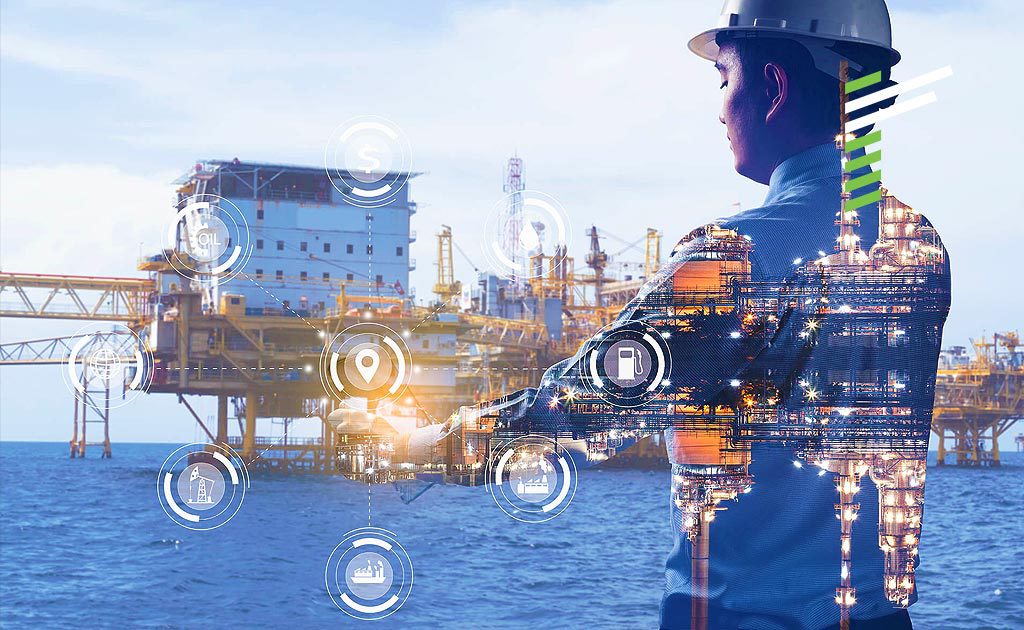The oil and gas (O&G) industry is driven by volatility, completely dependent on the global price of its namesake product. This unpredictability has forced industry players to look for new business opportunities and new technological innovations to gain an economic advantage.
In 2023 and beyond, O&G companies must strike a careful balance between investing in current and future production and refining capacity, while positioning their companies and operations for the net zero future.
A hotbed of innovation
Technology has always played a significant role in the O&G sector. ICT is of great importance to almost all aspects of O&G operations, from upstream to downstream operations. ICTs help to optimize O&G processes, thus improving the efficiency and viability of operations in this sector.
Additionally, advances in data analytics and the Industrial Internet of Things (IIoT) have helped players in this sector to optimize complex processes; track down elusive sources of loss and inefficiency; and respond more effectively to volatility, shocks, and disruptions.
Let’s look at some of the technologies actively being used in the O&G sector:
- Exploration and Production
Seismic imaging techniques have allowed for more accurate mapping of subsurface geological formations, enabling companies to identify potential hydrocarbon reservoirs. Advanced drilling technologies such as horizontal drilling and hydraulic fracturing (fracking), have made it possible to access previously inaccessible resources. - Reservoir Management
Advanced reservoir modelling and simulation software enable engineers to analyse and predict reservoir behaviour, optimize production strategies, and maximize recovery rates. Real-time monitoring systems and sensors provide valuable data on well performance, allowing for proactive decision-making and improved production efficiency. - Refining and Processing
Catalytic cracking and hydro processing have increased the yield of high-value products like gasoline, diesel, and petrochemicals. Enhanced process control systems and automation have optimised operations and reduced energy consumption. - Safety and Environmental Protection
Automated systems, robotics, and remotely operated vehicles (ROVs) are used in offshore operations to reduce human exposure to hazardous environments. Advanced drilling and well control technologies have improved well integrity and blowout prevention measures. Technologies like carbon capture and storage (CCS) are being explored to mitigate greenhouse gas emissions associated with fossil fuel use.
AI: The game-changer for oil and gas
The O&G industry has already actively embraced digital technologies and data analytics to optimise operations and make informed decisions. Big data analytics, machine learning, and artificial intelligence are currently used to analyse vast amounts of data collected from sensors, production systems, and other sources. This enables predictive maintenance, real-time optimization, and improved asset management.
But there’s more on the horizon. A recent EY survey reported that 92% of O&G companies are either currently investing in some form of AI, or at least plan to in the next couple of years.
With AI, the possibilities for data collection and analysis are endless, offering a significant competitive advantage to companies that choose to adopt this technology. For example, AI software can help O&G companies obtain vital information to improve their upstream processes. This process can involve collecting and feeding recorded data from various sources such as structured documents, PDF files, handwritten notes, audio or video files into the AI software. Companies can then use this data to optimise operations and improve long-term results.
One area where AI can have a significant impact is in reducing greenhouse gas emissions. Digital tools enabled by advanced analytics, artificial intelligence, and machine learning can help companies uncover the fastest and most effective path to abating the O&G industry’s greenhouse gas emissions. Using AI for environmental applications has the potential to boost global GDP by 3.1 – 4.4% while also reducing global greenhouse gas emissions by around 1.5 – 4.0% by 2030.
How Renoir helps organisations prepare for the future
Big data, advanced analytics, and AI are uniquely valuable assets that can offer O&G companies tremendous opportunities to accelerate growth and increase efficiencies. Renoir is uniquely suited to help O&G companies in the following ways:
- Centre of Data Excellence
We have established Centres of Excellence worldwide with in-house Data Engineers, Data Analysts, Data Scientists, Solution Architects, Digital Programme and Project Managers. We utilise the best-in-class data analytics and visualization solutions that best fits the needs of your operations. - Beyond mere implementation
We will analyse what value your business needs to deliver from its data, and how to best adopt to the changes required. We then help you to deliver the technical implementation and adoption of it. - Experts in adoption
As part of the engagement, Renoir has more than 25 years’ experience in taking projects to full adoption using our behavioural and cultural change methodologies. This guarantees that we leave the organisation and your people with the ability to continue to grow value long after the project is delivered.
Renoir begins every project with a thorough evaluation to determine root causes, then designs the optimum strategy to bring the highest returns before helping businesses implement it.
You can talk to one of consultants today to see how our solutions can help your organisation address the unique challenges efficiently and sustainably.










